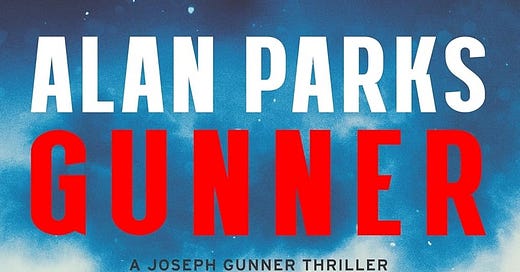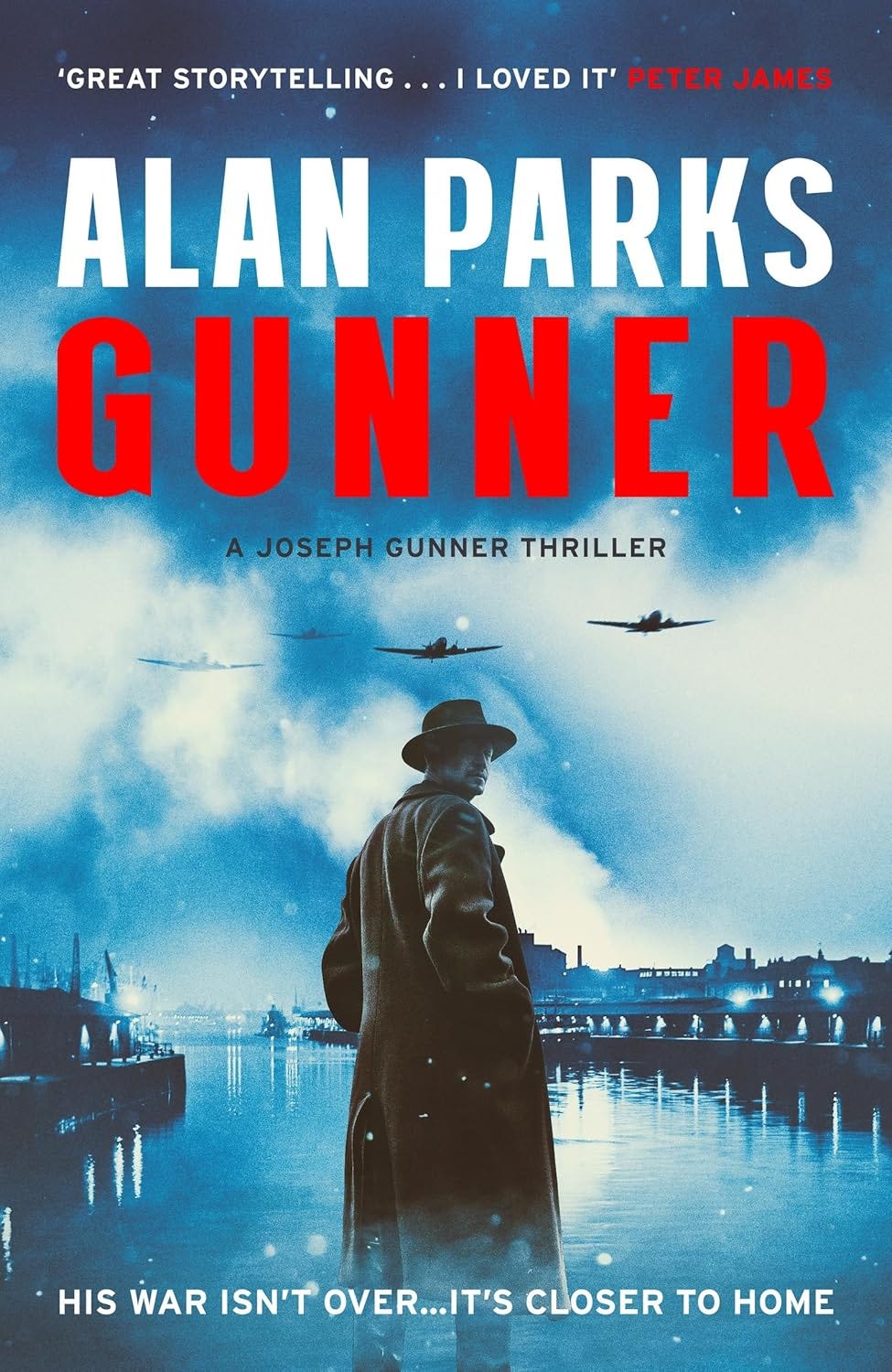Alan Parks's Gunner plunges the reader into the smoke-blackened alleys of wartime Glasgow, where bombers wheel overhead and loyalties are rarely pure. In this stark crime thriller, Parks builds his narrative around a protagonist who embodies the scar tissue of his environment: Joe Gunner, a former police detective and army sergeant, physically maimed, psychologically brittle, and increasingly unmoored from any notion of moral clarity.
What makes Gunner compelling is not merely its tight plotting or its vivid sense of place—though both are undeniable strengths—but its resistance to present heroism as anything clean or aspirational. Gunner is no beacon of righteousness. He is a man eroded by pain, trauma, and cynicism, operating in a city that mirrors his internal wreckage. Glasgow, in Parks's hands, is not a romanticized noir backdrop but a bomb-pocked, morally fluid landscape that forces hard choices on those who inhabit it.
Gunner himself is the novel's chief triumph and its most disturbing element. Haunted by memories of wartime France and numbed by morphine, he is a protagonist at odds with himself: simultaneously driven and adrift. Parks doesn’t redeem Gunner; instead, he paints a portrait of a man shaped by brutality, no longer convinced that decency holds any real value. This moral indifference gives the book its edge—and its unsettling emotional truth.
The narrative begins when Gunner's reluctant return to police work leads him to investigate a mutilated body discovered in the rubble of bombed-out Glasgow. What follows is a dense conspiracy that exposes the sinister repurposing of identity itself, forcing Gunner on an odyssey through the wreckage of a city—and a self—that no longer recognizes their former contours.
Parks's prose is lean, unpretentious, and loaded with atmospheric weight. He makes no aesthetic apologies for the grit, nor does he try to stylize it into a noir pastiche. Dialogue is sharp, regional, and alive with class tension. And while the plot accelerates with thriller efficiency, Parks wisely slows down when it matters most—to let us sit in Gunner's pain, to make us reckon with the choices he makes and what they cost him.
What emerges from the wreckage is Parks's bleak insight: that clear moral boundaries have collapsed under the weight of expedience and trauma. In such a world, even well-intentioned actions carry the stink of compromise. Gunner does not rise above this dilemma; he is consumed by it.
Gunner is not a comfortable read, nor is it meant to be. It is, instead, a sobering meditation on what happens when systems fail, when violence becomes habit, and when the line between victim and perpetrator blurs beyond recognition. Parks doesn't offer solace. He offers truth—and in Joe Gunner, a protagonist whose flaws make him painfully, troublingly real.
This review is based on an advance reader copy provided by NetGalley and John Murray Press | Baskerville.



